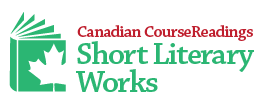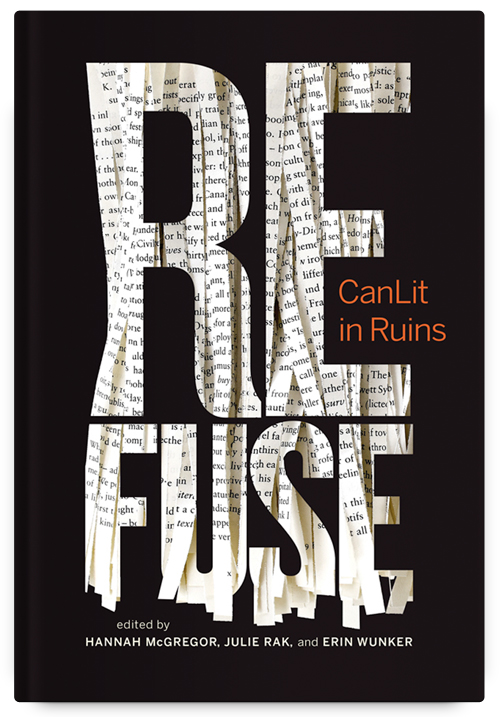| Authors | |
|---|---|
| Publisher | |
| Publication Year |
Refuse
CanLit in Ruins
CanLit—the commonly used short form for English Canadian Literature as a cultural formation and industry—has been at the heart of several recent public controversies. Why? Because CanLit is breaking open to reveal the accepted injustices at its heart. It is imperative that these public controversies and the issues that sparked them be subject to careful and thorough discussion and critique.
Refuse: CanLit in Ruins provides a critical and historical context to help readers understand conversations happening about CanLit presently. One of its goals is to foreground the perspectives of those who have been changing the conversation about what CanLit is and what it could be. Topics such as literary celebrity, white power, appropriation, class, rape culture, and the ongoing impact of settler colonialism are addressed by a diverse gathering of writers from across Canada. This volume works to avoid a single metanarrative response to these issues, but rather brings together a cacophonous and ruinous multitude of voices.
With contributions by: Zoe Todd, Keith Maillard, Jane Eaton Hamilton, kim goldberg, Tanis MacDonald, Gwen Benaway, Lucia Lorenzi, Alicia Elliott, Sonnet l’Abbé, Marie Carrière, Kai Cheng Thom, Dorothy Ellen Palmer, Natalee Caple & Nikki Reimer, Lorraine York, Chelsea Vowel, Laura Moss, Phoebe Wang, A.H. Reaume, Jennifer Andrews, Kristen Darch & Fazeela Jiwa, Erika Thorkelson and Joshua Whitehead
Contributors
Hannah McGregor
HANNAH McGREGOR is an Assistant Professor of Publishing at Simon Fraser University, a feminist podcaster, and a CanLit killjoy. She co-hosts the popular Harry Potter podcast Witch, Please, and hosts the slightly less popular podcast Secret Feminist Agenda, a weekly discussion of the insidious, nefarious, insurgent, and mundane ways we enact our feminism in our daily lives. She lives in Vancouver on the territory of the Musqueam, Squamish, Contributor Bios · 203 and Tsleil-Waututh, and has two cats; one is named after a poet, and the other is named after a breakfast.
Julie Rak
JULIE RAK is a Professor at the University of Alberta who lives and works on Treaty 6 and Métis territory. Julie was a Killam Professor for 2017–18 at her university. She is the author of two books, eight edited collections, and other publications in the areas of life writing and other non-fiction, Canadian literature in English, and book history. With Keavy Martin, she edited the new and way better edition of the landmark memoir about Inuit life, Life Among the Qallunaat, with the full participation of author Mini Aodla Freeman. Julie is completing a SSHRC-funded book manuscript, Social Climbing: Gender in Mountaineering Expedition Writing, for McGill-Queens University Press, and she promises her editor that she really is almost finished.
Erin Wunker
ERIN WUNKER researches, teaches, and writes in Halifax, Nova Scotia.



